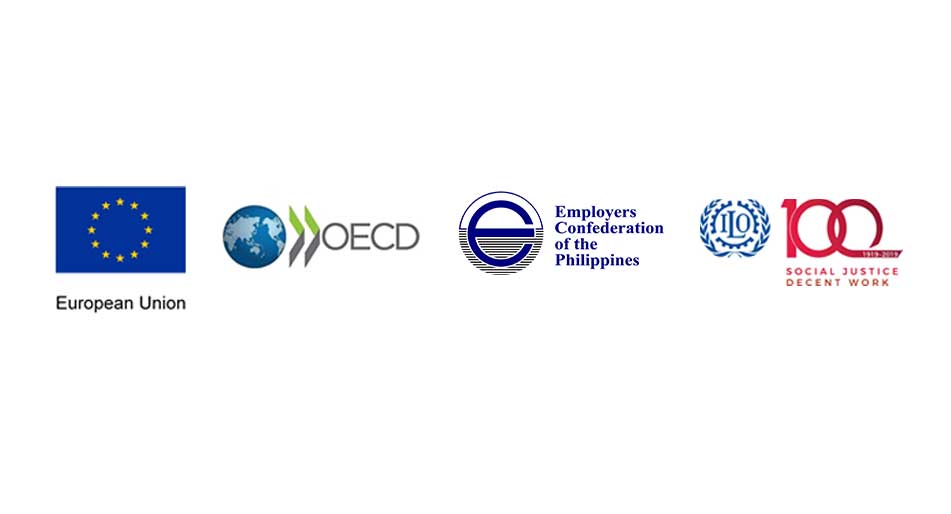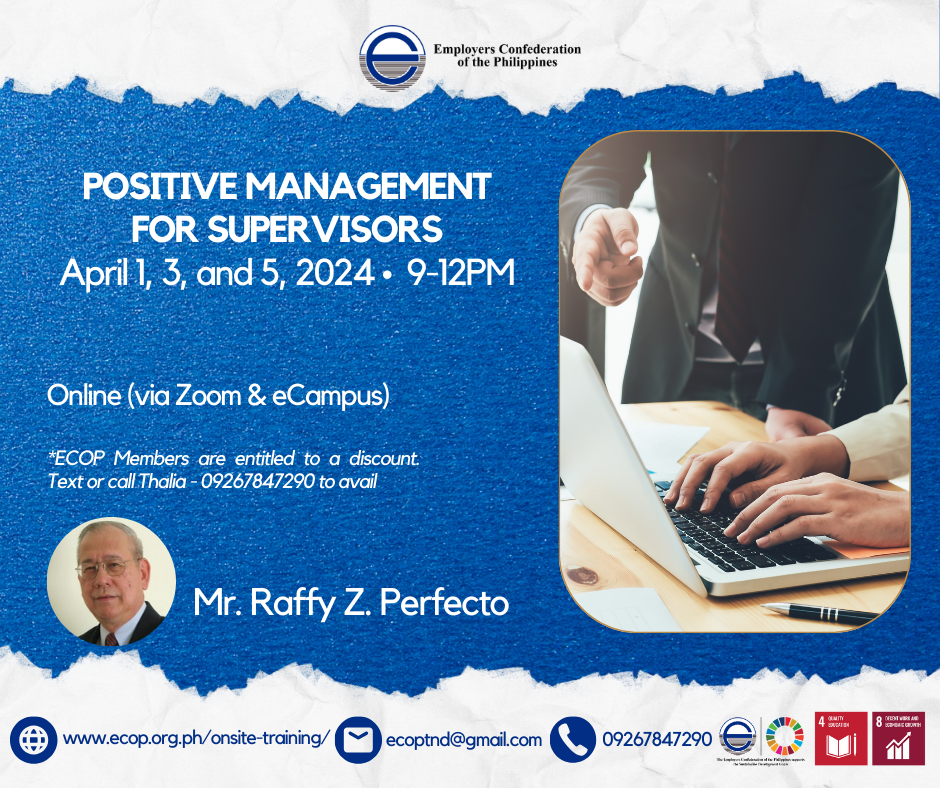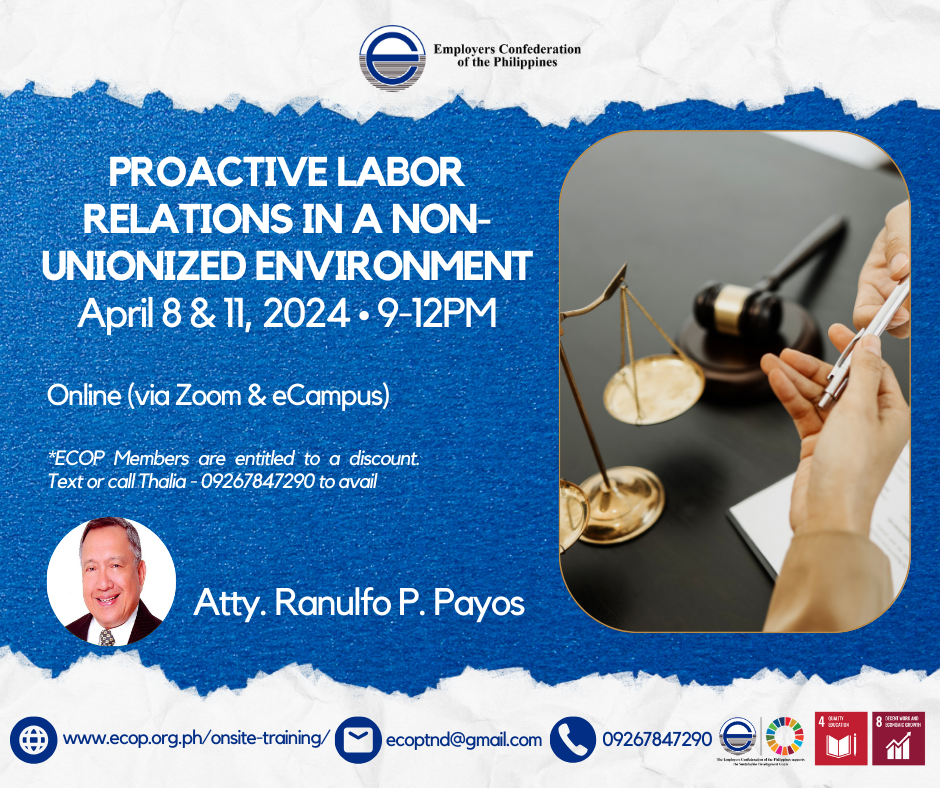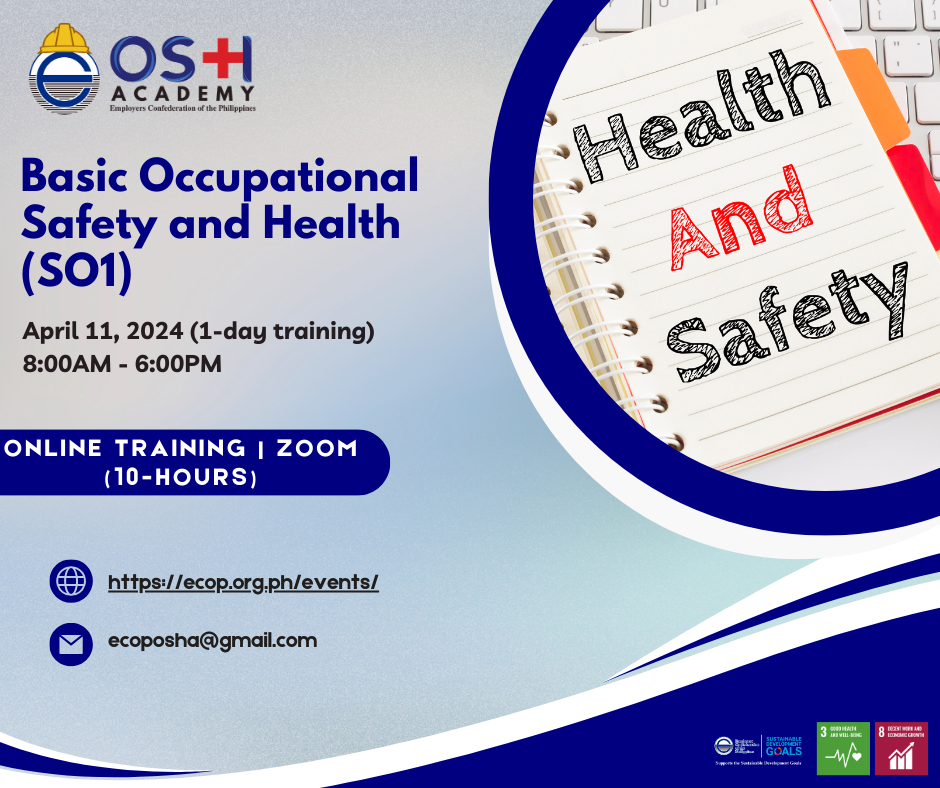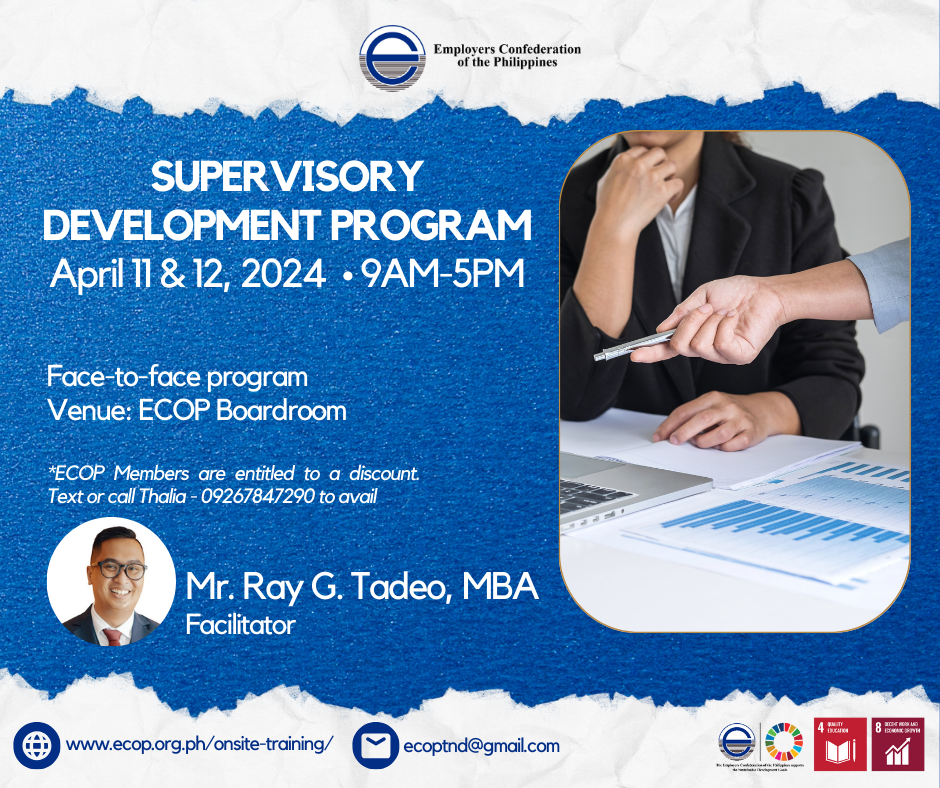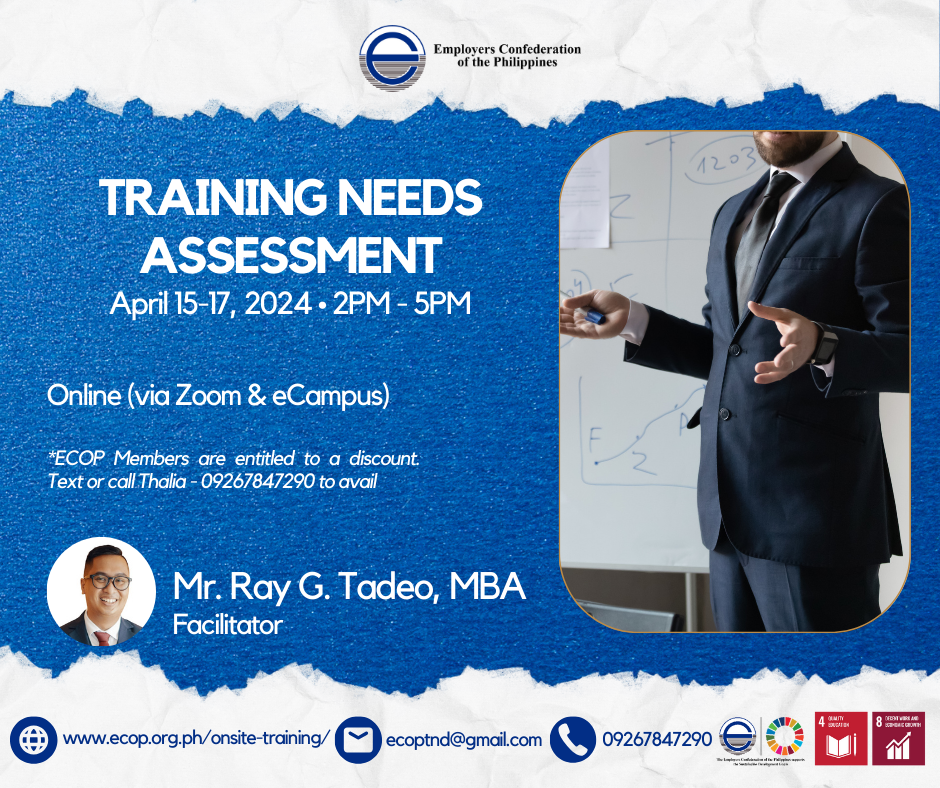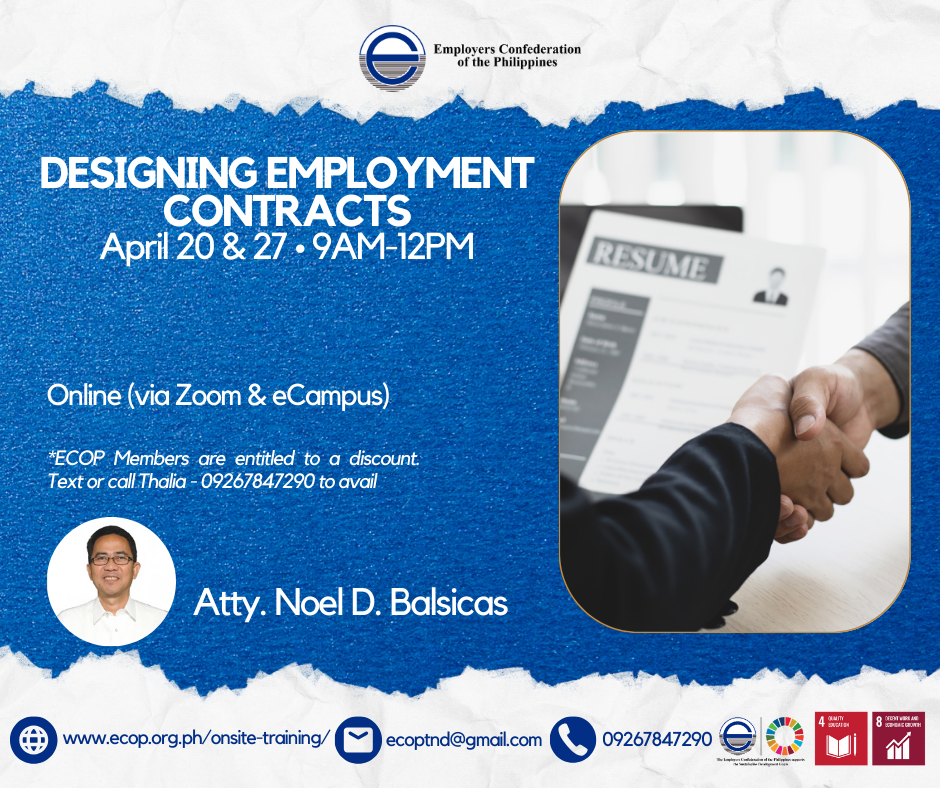Over a hundred companies and enterprises involved in agribusiness in the Philippines will gather to address decent work challenges and to invest in responsible business conduct as part of the 2019 Sustainable Agriculture Forum.
Agribusiness companies and enterprises will engage in a dialogue to transform international business conduct principles to policies and actions towards responsible supply chains.
The International Labour Organization (ILO), Organisation for Economic Co-operation and Development (OECD), and the Employers Confederation of the Philippines (ECOP) will provide a safe space for dialogue through a seminar on “Implementation of International Expectations and Standards on Corporate Social Responsibility/Responsible Business Conduct (CSR/RBC) in Agribusiness”. It will be held on 25 July as part of the 2019 Sustainable Agriculture Forum hosted by the European Chamber of Commerce of the Philippines (ECCP) in Pasay City, Manila.
The seminar builds on the ILO and OECD’s Responsible Supply Chains in Asia Regional Programme supported by the European Union (EU) to promote decent work, environmental sustainability and respect for human rights in the Philippines.
Over a hundred companies and enterprises including members of the ECCP, Philippine Chamber of Commerce and Industry, foreign chambers engaged in the agribusiness, local governments, workers, civil society and non-government organizations will participate.
“We want to provide an opportunity for dialogue on decent work challenges in agribusiness. Supply chains in agribusiness involve many actors, suppliers and subcontractors. Companies and enterprises play crucial roles in ensuring decent work and respecting labour rights, while protecting the environment even at the bottom of supply chains,” said Khalid Hassan, Director of the ILO Country Office for the Philippines.
In the Philippines, more than 10 million people depend on agriculture as main source of livelihood. Yet workers in agriculture often face challenges on fair wages, social protection and safety and health at work. Some of them work without contracts, which undermine their labour rights. The sector also accounts for the largest share of child labour in the Philippines.
The seminar will provide business with clarity around international expectations on Responsible Business Conduct, and importantly how business can take steps today to identify and address risks in supply chains. Agribusinesses by working together can act to ensure that operations and business relationships do not lead to adverse impacts. By maximizing the positive contributions of agriculture and addressing the related risks, businesses in the Philippines can contribute to sustainable development across the entire agricultural supply chain. It’s time to move from policy to action, and we have the tools to do so. . ,” said Ms. Shivani Kannabhiran, Agriculture Sector Lead and Policy Advisor, Responsible Business Conduct, OECD.
Employers and export businesses are aware that majority of free trade agreements include labour provisions which demands observance of ILO core labour standards, including Preferential Trade Agreements (PTA) such as the EU General System of Preference (GSP+).
The EU is a top trading partner of the Philippines for agricultural and food products. Under the GSP+, the EU provides trade incentives to guarantee human and labour rights, which include CSR/RBC.
The government’s Inclusive Business Programme fosters an enabling environment for CSR/RBC in line with the Philippine Development Plan. Increased awareness of the CSR/RBC further contributes to enhancing engagement of businesses to integrate the Sustainable Development Goals and the UN Protect, Respect and Remedy framework for business and human rights.
“We at the Employers Confederation of the Philippines (ECOP) strongly believe that to be sustainable, businesses must also take a long-term view of their impacts on the lives of their employees and the local communities where the company operates and as returns to investors.” , said Mr. Sergio Ortiz-Luis, Jr. of ECOP.
Therefore, responsible business practice should be an integral part of sound corporate governance practices and that the integration of environmental, social and even governance issues into investment decisions is critical to valuing long-term investments”.
The seminar will serve as venue for agribusiness companies and enterprises to learn more about international standards and tools available for implementing CSR/RBC practices while addressing key risks across global agricultural supply chains. Agreements and recommendations from the dialogue will contribute to strengthening policy coherence, due diligence, collaboration and transparency in governance of enterprises and supply chains.
For more information please contact:
International Labour Organization (ILO)
Ms Ruby Bañez
ILO Responsible Supply Chains in Asia
+63 2 580 9910
[email protected]
European Union (EU)
Ms Thelma Gecolea
Delegation of the European Union to the Philippines
+63 2 859 5124
[email protected]
OECD
Organisation for Economic Co-operation and Development (OECD)
Ms Stephanie Venuti
OECD Responsible Supply Chains in Asia
+63 2 580 9910
[email protected]
ECOP
Mr. Neil Don Orillaneda
Regional Affairs Coordinator
+63 2 890 4847
[email protected]

